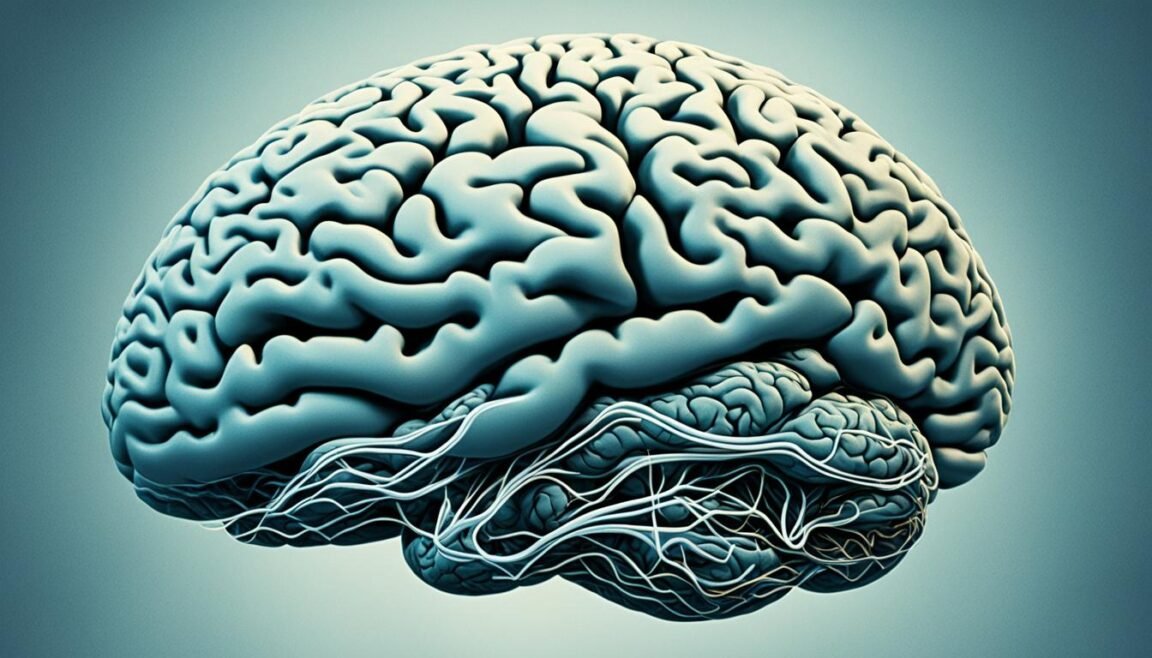Uncover the Importance of Sleep for Well-Being
Sleep is a fundamental aspect of maintaining overall well-being and should not be underestimated. It plays a crucial role in various areas of our lives, including brain health, emotional regulation, physical health, and cognitive function. In this article, we will explore the significance of sleep and how it impacts different aspects of our well-being. We will also delve into the implications of sleep deprivation and discuss ways to address and overcome sleep disorders for a healthier and more fulfilling life.
Key Takeaways
- Sleep is essential for brain health, emotional well-being, and physical health.
- Sleep deprivation can have profound effects on mental and physical well-being.
- Developing healthy sleep habits and maintaining a consistent sleep schedule is crucial.
- Addressing and overcoming sleep disorders is important for improving sleep quality and overall well-being.
- Prioritizing sleep is essential for optimal productivity, safety, and overall happiness.
The Critical Role of Sleep in Brain Health and Function
Sleep plays a crucial role in maintaining brain health and function. Adequate and restful sleep is essential for overall well-being, including cognitive performance and psychological health. In this section, we will explore the various ways in which sleep impacts the brain and its vital functions.
Neurological Maintenance During Sleep
During sleep, the brain undergoes crucial maintenance processes that are essential for optimal neurological function. These processes include neuronal repair, synapse pruning, and the consolidation of memories. Neurological maintenance during sleep ensures that the brain is ready for optimal cognitive performance and overall brain health.
Toxin Removal and Sleep’s Restorative Effects on the Brain
Sleep plays a restorative role in removing toxins from the brain. The glymphatic system, a waste clearance pathway in the brain, is more active during sleep. This enhanced activity facilitates the removal of harmful waste products, including beta-amyloid, a protein associated with Alzheimer’s disease. Adequate sleep promotes brain health by allowing efficient toxin removal, which is crucial for long-term brain function and overall well-being.
The Connection Between Sleep and Cognitive Performance
Sleep quality directly influences cognitive performance. Sufficient and high-quality sleep enhances attention, focus, problem-solving skills, creativity, and decision-making abilities. On the other hand, sleep deprivation and poor sleep quality can impair cognitive function, leading to difficulties in concentration, memory, and overall cognitive performance.
Implications of Sleep Quality on Long-term Psychological Health
The quality of sleep has significant implications for long-term psychological health. Chronic sleep disturbances and poor sleep quality are associated with an increased risk of mental health disorders such as anxiety and depression. Adequate and restful sleep supports emotional well-being, stress management, and overall psychological health.

| Impact of Sleep on Brain Health | Functions |
|---|---|
| Toxin Removal | During sleep, the brain’s waste clearance system eliminates harmful toxins, promoting brain health and reducing the risk of neurodegenerative diseases. |
| Neurological Repair | Sleep allows the brain to repair damaged neurons and synapses, ensuring optimal communication and function. |
| Cognitive Performance | Adequate sleep enhances attention, focus, problem-solving skills, creativity, and overall cognitive performance. |
| Psychological Health | Quality sleep supports emotional well-being, stress management, and overall psychological health. |
The Importance of Sleep for Emotional Regulation and Mental Wellness
Sleep plays a profound role in emotional regulation and mental wellness. It is crucial for managing emotions, maintaining a positive mood, and preventing mental health issues such as anxiety and depression. Sufficient sleep allows our brains to process and regulate emotions effectively, leading to better overall mental well-being.
Research has shown a strong connection between sleep and mental health. When we lack adequate sleep, our emotional stability can be compromised, making it more difficult to cope with stressors and regulate our emotions. This can result in heightened anxiety, irritability, and difficulty concentrating.
Getting enough sleep is essential for our psychological health. It helps restore and recharge our brain, allowing us to approach daily challenges with clarity and resilience. Quality sleep improves our cognitive abilities, memory, and decision-making skills, contributing to better psychological functioning.
Moreover, sleep plays a vital role in the formation and consolidation of memories, including emotional memories. During sleep, our brains process and integrate experiences, helping us regulate and make sense of our emotions. This process is crucial for emotional resilience and overall mental well-being.
“Sleep is the golden chain that ties health and our bodies together.” – Thomas Dekker
Conversely, a lack of sleep can have detrimental effects on our emotional and psychological health. Sleep deprivation has been associated with an increased risk of developing mental health disorders, such as anxiety disorders, mood disorders, and even psychosis.
It is crucial to prioritize sleep and establish healthy sleep habits to promote emotional regulation and mental well-being. Creating a bedtime routine, maintaining a consistent sleep schedule, and creating a sleep-friendly environment can all contribute to better sleep quality and improved emotional resilience.
By recognizing the importance of sleep in mental health and taking steps to prioritize it, we can enhance our emotional well-being, better manage stress, and promote overall mental wellness.
Addressing and Overcoming Sleep Disorders
Sleep disorders can significantly impact quality of life and overall well-being. It is essential to address and overcome sleep disorders to improve sleep quality and maintain optimal health. Proper diagnosis and treatment from healthcare professionals are crucial for managing sleep disorders effectively.
There are several treatment options available for common sleep disorders such as insomnia and sleep apnea:
- Cognitive Behavioral Therapy for Insomnia (CBT-I): CBT-I is a structured therapeutic approach aimed at addressing the underlying factors contributing to insomnia. It helps individuals develop healthy sleep habits, manage stress, and reframe their thoughts and behaviors related to sleep.
- Sleep Apnea Treatment: Sleep apnea, a sleep disorder characterized by interrupted breathing during sleep, can be treated with a Continuous Positive Airway Pressure (CPAP) machine. This device keeps airways open by delivering a continuous stream of air, preventing apnea episodes.
- Lifestyle Changes: Adopting healthy sleep habits and making adjustments to daily routines can greatly improve sleep quality. This may include maintaining a consistent sleep schedule, creating a relaxing sleep environment, avoiding caffeine and electronic devices before bed, and incorporating regular physical activity into one’s routine.
If you suspect you may have a sleep disorder, it is important to seek a proper diagnosis from a healthcare professional. They can evaluate your symptoms, conduct sleep studies if necessary, and recommend appropriate treatment options to address your specific needs.

Conclusion
Enhancing Your Sleep Quality for Better Mental and Physical Well-Being
Prioritizing sleep and adopting healthy sleep habits are essential for better mental and physical well-being. Quality sleep plays a critical role in our overall health and happiness. By enhancing sleep quality through simple lifestyle changes, we can experience profound improvements in our daily lives.
Creating a conducive sleep environment is vital for ensuring a restful night’s sleep. This can be achieved by keeping the bedroom dark, quiet, and at a comfortable temperature. Additionally, practicing good sleep hygiene, such as sticking to a consistent sleep schedule and avoiding stimulating activities before bed, can help improve sleep quality.
Recognizing When to Seek Help
It is important to recognize when we need professional help for sleep issues. Sleep disorders can significantly affect our quality of life, and seeking appropriate treatment is essential. If you find yourself regularly struggling with insomnia, excessive daytime sleepiness, or loud snoring, it may be time to consult a healthcare professional.
The Societal Importance of Prioritizing Sleep
Prioritizing sleep is not just a personal choice; it has a broader societal impact. By ensuring that we get enough quality sleep, we can contribute to improved productivity, safety, and overall well-being for ourselves and our communities. When individuals prioritize sleep, they are better equipped to handle daily challenges, make sound decisions, and perform at their best in various areas of life.
In conclusion, enhancing sleep quality, adopting healthy sleep habits, and recognizing when to seek help are key components of achieving better mental and physical well-being. By prioritizing sleep and understanding its societal importance, we can unlock the numerous benefits of quality sleep and lead happier, healthier lives.
FAQ
What is the importance of sleep for well-being?
Sleep is vital for overall well-being as it plays a critical role in brain health, emotional regulation, physical health, and cognitive function.
How does sleep impact brain health and function?
During sleep, the brain undergoes important maintenance processes, including neurological repair and toxin removal. Adequate sleep is essential for optimal cognitive performance and has implications for long-term psychological health.
What is the connection between sleep and mental wellness?
Sufficient sleep is crucial for managing emotions, maintaining a positive mood, and preventing mental health issues such as anxiety and depression. Lack of sleep can lead to emotional instability and contribute to the development of mental health disorders.
How does sleep deprivation affect physical health?
Sleep deprivation has been linked to an increased risk of chronic health issues such as heart disease, stroke, obesity, and dementia. Sleep plays a vital role in the body’s healing processes and immune system function. Poor sleep quality can also contribute to weight gain, diabetes, and cardiovascular risks.
How can sleep disorders be addressed and overcome?
Treatment options for sleep disorders such as insomnia and sleep apnea include cognitive behavioral therapy, the use of CPAP machines, and lifestyle changes. Proper diagnosis and treatment from healthcare professionals are crucial for managing sleep disorders effectively.
What can I do to enhance my sleep quality?
Enhancing sleep quality can be achieved through lifestyle changes, creating a conducive sleep environment, and practicing good sleep hygiene. Prioritizing sleep and adopting healthy sleep habits are essential for better mental and physical well-being.
When should I seek help for sleep issues?
It is vital to seek help for sleep issues when they significantly affect your quality of life. Sleep disorders can have profound implications and professional guidance can help address and manage these issues effectively.
Why is it important to prioritize sleep?
Prioritizing sleep is not only crucial for individual well-being but also for societal benefits. Improved sleep can lead to increased productivity, safety, and overall well-being for individuals and communities.
Source Links
- https://newsinhealth.nih.gov/2021/04/good-sleep-good-health
- https://www.mentalhealth.org.uk/explore-mental-health/publications/sleep-matters-impact-sleep-health-and-wellbeing
- https://www.sleepfoundation.org/how-sleep-works/why-do-we-need-sleep
Written by Mirna

